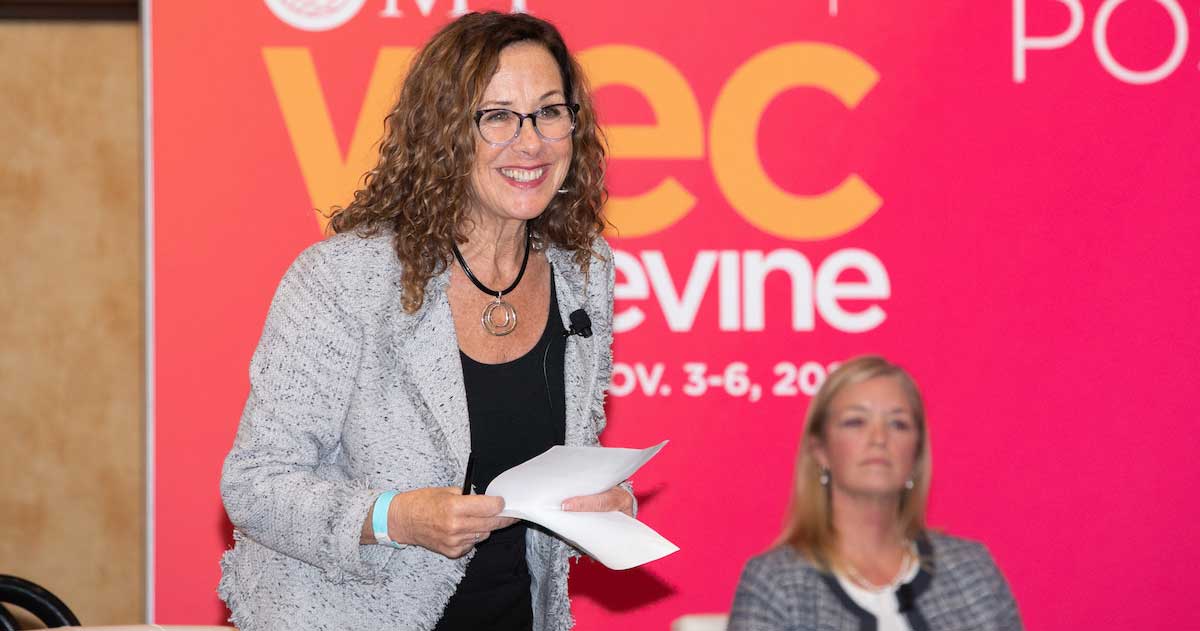Although veteran meeting professional Terri Breining, CMP, CMM, DES (MPI San Diego Chapter), has been doing business coaching for a few years, she says facilitating advisory boards, executive retreats and board strategy sessions kept her busy and unable to focus on expanding the coaching element of her business.

“The pandemic has provided a lot of loss, discomfort and inconvenience, but one of the benefits it’s provided is the opportunity to slow down and look more thoughtfully at what we’re doing and why we’re doing it,” says Breining, president of the Breining Group Inc. “So, I was given the space to consider how I could expand the coaching, which resulted in the development of some new processes and messaging, enabling me to make this part of my business more robust. Also, the disruption to the meeting industry has left many meeting professionals wondering about their next steps. ‘Where do I go from here?’ ‘Where do I fit in this newly defined meeting environment?’ ‘Do I have the skills to go to the next level?’ ‘Do I want to stay in the industry?’ ‘What opportunities exist today that weren’t there last year?’ These are some of the questions we deal with in a coaching relationship.”
She hasn’t seen a mass exodus from the meeting industry but says that could be because the entire business world has been disrupted.
“I’m hearing some planners taking on interim jobs which enable them to pay their bills, i.e., Home Depot, barista, remote administrative support, etc., but the sense I have right now is that these are temporary until meeting management positions are available again,” Breining says.
She says skills developed as a meeting planner and then as a business owner are now essential for excelling in the coaching arena.
“The pandemic has provided a lot of loss, discomfort and inconvenience, but one of the benefits it’s provided is the opportunity to slow down and look more thoughtfully at what we’re doing and why we’re doing it.”
“As a meeting planner back in the day, I had to listen very carefully to what was said about the purpose and direction of the meetings I was responsible for managing. As a business owner, I was responsible for making decisions that affected my business, my employees, our clients and our supplier partners. That also called for strong listening skills, as well as the ability to have hard conversations with people that didn’t leave them feeling battered and bruised,” Breining says. “Those skills are essential in coaching—listening to what is said and the subtext; helping people identify the answers themselves rather than giving them my opinions; speaking the hard truth when needed, but in a way that is kind and helpful; and helping people recognize their areas of strength rather than focusing on where they’re failing.”
When asked about someone who inspired her during coaching experiences over the past year, she points to Kathleen.
“She was considering several ideas for business, with a little effort going into all of them, but none of them gaining traction,” Breining says. “Our work involved identifying the areas of business where there was the greatest interest and passion (this is usually where our strengths lie), which identified two programs that would provide sufficient enthusiasm and energy as well as revenue. We then worked together to put together a business plan for one of these programs. The program launched successfully and is continuing today with a growing client list.”
She finds the coaching relationship most gratifying when she’s working with someone and sees the light come on.
“When they realize they possess strengths they didn’t know they had,” Breining says. “When they gain clarity about what they want to do and then start the process of making it happen. When they have a moment of awareness about themselves or others that they’ll carry with them wherever they go. When they recognize that they’ve accomplished something they didn’t think themselves capable of. These are moments that make life worthwhile, and they are moments that happen when I’m working with a coaching client that is committed to their personal growth.”
Don’t Underestimate Your Skillset
Breining says many of the skills required for success in the evolving meeting industry are the same as those needed for meeting professionals all along, but “which might have been easy to sidestep.”
· Driving the development of clear and measurable objectives, and then making sure that they remain a part of every element of planning.
· Working cooperatively with a variety of stakeholders to accomplish the objectives.
· A level of emotional intelligence that enables clear communication both up and down the leadership chain.
· An understanding of the impact of meetings/events on financial health.
“These skills have always been important but come into clearer focus when meetings aren’t reliant on big, splashy extravaganzas, which can divert attention away from fuzzy meeting objectives,” she says. “In a virtual environment, the ‘business of meetings’ comes into greater focus and is more important than ever. And the virtual environment, which appears to be a long-term part of meetings and events in the future, outlines the need for meeting professionals to expand their understanding of technology and how it can be leveraged most effectively.”

